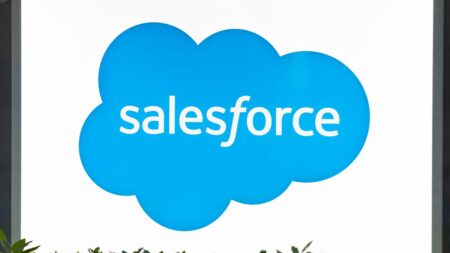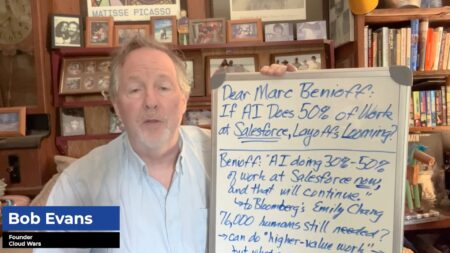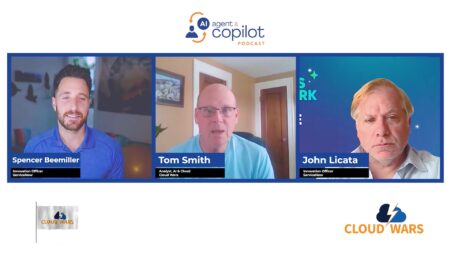
As business customers continue to demand that tech vendors help them unify disparate information technology (IT) environments, the recent cloud-to-mainframe partnership between Microsoft and Kyndryl represents the shape of things to come.
What we have here are two powerful forces colliding head-on:
- Fragmented IT systems, architectures, and platforms represent an enormous obstacle for businesses striving for end-to-end digital capabilities.
- At the same time, companies in every industry are racing to gain access to and optimize all of their data.
And after decades of the IT industry pumping out new types of technology that were simultaneously powerful but also frequently incompatible with existing environments, business leaders are pushing back — hard — on their tech providers to help bulldoze the fragmentation and silos that are thwarting innovation, speed, and data-driven initiatives.
This Cloud Wars Horizon Minute is sponsored by Celonis, the market leader in process mining and execution management. The world’s top 2,000 process fanatics learned to fix process inefficiencies at Celosphere, the company’s annual conference, which was held November 9th and 10th in Munich, Germany. Sign up to watch the free virtual Celosphere 2022 stream here.
In that context, the recent announcement from Microsoft and Kyndryl is both interesting in itself but also, I think, a harbinger of what we can expect to see across the board as CEOs and CTOs and CIOs look to unify their landscape of on-prem systems, cloud, edge, cybersecurity, Internet of Things (IoT), artificial intelligence (AI), and more.
At the heart of the Kyndryl-Microsoft agreement is their shared desire to make it easier for their customers to gain full access to and control over mainframe data via cloud environments.
From a recent Kyndryl press release:
Kyndryl, provider of the secure multi-tenant zCloud, is applying its unique expertise to create data pipes that enable connections between the mainframe, including its zCloud platform, and the Microsoft cloud, making it easier for customers to move their mainframe data to the cloud, thereby unlocking new uses and value streams from their entire data estate. Customers will have a holistic view of their data and can take advantage of machine learning, AI, analytics, and reporting, and will be able to leverage low code/no code applications with Microsoft Power Platform.
Of course, while that access to mainframe data via the cloud is a great step forward, it’s only the first such step as businesses of every kind look to become not just consumers of applications but also creators of new digital solutions to meet the emerging needs of digital business.
In that context, the Kyndryl deal with Microsoft helps customers take big strides in that direction by helping them knock down technological silos preventing those businesses from being able to unify their data and then build on all of it.
The two companies say their new partnership will allow customers to “combine mainframe data with other internal and external cloud-based data sources” and thereby be able to “create new applications that leverage modern analytics and visualization tools to deliver advanced insights at scale.”
The key technology behind that big advancement is Microsoft Power Platform and its AI-enabled low-code/no-code capabilities.
Final Thought
This partnership underscores a much-needed new trend among big tech vendors to recognize that customers don’t just want but also need to unify the far-flung technologies that the IT industry has foisted upon those customers for the past few decades.
Until recently, the tech industry’s attitude toward that huge challenge for customers was pretty much along the lines of “Hey, sorry, but not my problem!” But today, as the multi-cloud mindset permeates and becomes the standard, such an attitude will be deadly for any tech vendor foolish enough to maintain it.
Want to gain more insights from Bob Evans and view cloud-focused content from Cloud Wars Expo? On-demand video from the event is rolling out now, with more than 40 hours of cloud education content — featuring 100-plus speakers — to be made available in the coming days. All content is free to Acceleration Economy subscribers with an on-demand pass.








